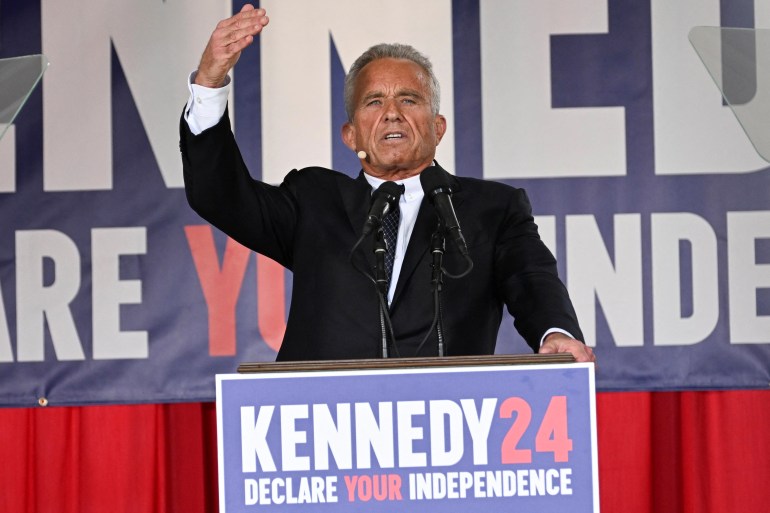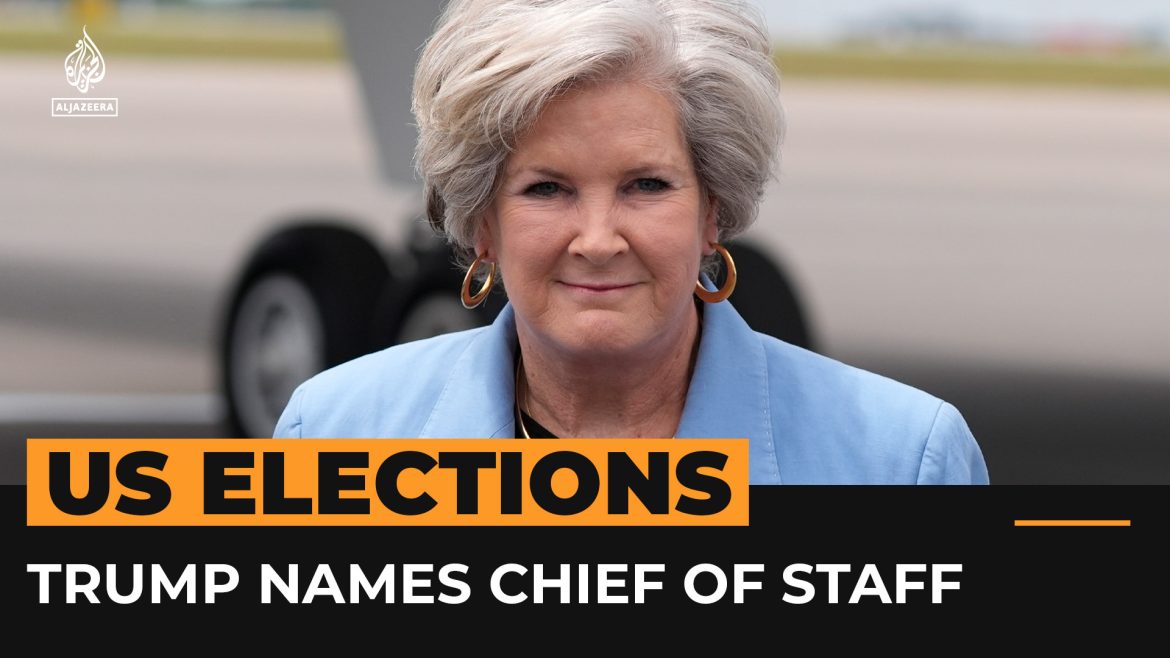Who’s in? And who’s out?
Donald Trump is carefully considering his cabinet picks following his historic presidential election victory over Democratic nominee Kamala Harris on Tuesday.
Trump had reportedly avoided detailed cabinet discussions until after the election results were clear.
In one early announcement, he said on Thursday that helping him manage that team will be Susie Wiles, who managed his election campaign and will now serve as his chief of staff.
“Susie is tough, smart, innovative, and is universally admired and respected. Susie will continue to work tirelessly to make America great again,” Trump said.
“It is a well-deserved honour to have Susie as the first-ever female chief of staff in United States history. I have no doubt that she will make our country proud.”

Here’s a closer look at who else might be part of the next administration, from seasoned Republican figures to unexpected newcomers.
JD Vance – Senator, Ohio, and vice president-elect

Ohio Senator JD Vance has quickly risen as a prominent GOP voice, going from never-Trumper to loyal running mate. Despite once comparing Trump to Hitler, ideologically Vance is aligned with the 47th president’s MAGA base, particularly on issues like national security and US-China relations. A former venture capitalist and author, Vance is a staunch advocate of Trump’s America First agenda. He’s a sharp critic of Joe Biden’s foreign policy and will bring a populist stance to the Oval Office.
Robert F Kennedy Jr – Presidential candidate, environmental lawyer

One-time Democrat, Robert F Kennedy Jr, ran on an unsuccessful independent ticket for president this election cycle, before ending his campaign to become a Trump surrogate. He weathered a number of gaffes that came to light during his campaign, including admitting to short-term memory loss due to “brain worms”, abandoning a dead bear in a park, and accusations that he sexually assaulted his family’s live-in nanny in 1998.
A purveyor of vaccine conspiracies, Trump predicted he’d tap Kennedy to “go wild on health”, per The New York Times. His first act of business if appointed? Kennedy said he would push to “advise all US water systems to remove fluoride from public water”.
Vivek Ramaswamy – Biotechnology entrepreneur

Vivek Ramaswamy, an entrepreneur-turned-politician, made a name for himself in the 2024 Republican primary with his anti-“woke” agenda and government reform. Ramaswamy, a vocal critic of Big Tech censorship and bureaucratic overreach, could take a role in the Department of Commerce or a technology-focused post, driving policies that challenge Silicon Valley and reinforce free speech. While he’s a longtime friend of JD Vance, he has portrayed himself as differing from the next vice president ideologically, casting himself in a more libertarian mould, as opposed to Vance’s support for elements of economic populism.
Marco Rubio – Senator, Florida

Senator Marco Rubio, who was repeatedly attacked by Trump in the 2016 Republican primaries, has been a vocal critic of Biden’s stance on national security and foreign policy; he’s strongly anti-Russia and anti-China. Rubio, who was tapped as a potential vice presidential pick, has experience in foreign affairs positions, making him a strong candidate for secretary of state or another foreign policy role. He aligns closely with Trump’s emphasis on prioritising American interests.
Elon Musk – CEO, Tesla, SpaceX

Another billionaire eyeing a top spot in the Trump world, Elon Musk was central to Trump’s decisive victory at the polls. Musk endorsed Trump shortly after the assassination attempt against the president-elect at a Butler, Pennsylvania rally. The tech tycoon was a fixture on the incoming president’s campaign trail, mobilising the MAGA vote at rallies and online with a super PAC he set up.
Days before Trump was catapulted back to the White House, the X owner pledged to overhaul the federal government as a “secretary of cost-cutting” if awarded a cabinet position. However, Musk may decide he’s better suited for an oversight role, rather than a position like secretary of energy, which would involve congressional approval hearings.
Doug Burgum – Governor, North Dakota

Doug Burgum ran a longshot primary campaign against Trump, in which the incoming president steamrolled the North Dakota governor. But could the gambit have paid off in the long run? Burgum’s failed primary effort significantly boosted his profile on the national stage. His experience in managing North Dakota’s natural resources positions him as a suitable candidate for secretary of the interior. He is likely to focus on balancing energy development with conservation efforts, overseeing public lands, and implementing policies that support both economic growth and environmental stewardship.
John Ratcliffe – Former director of national intelligence

